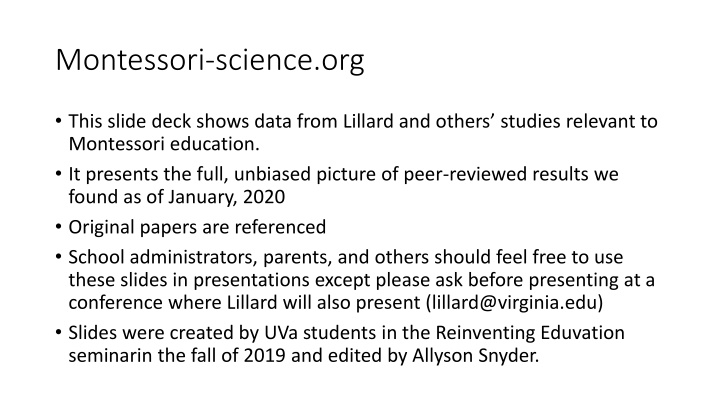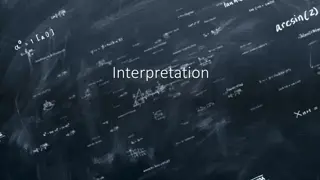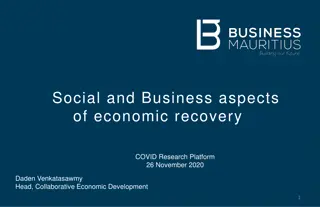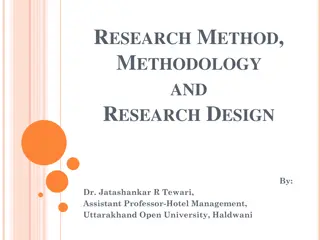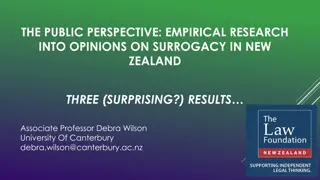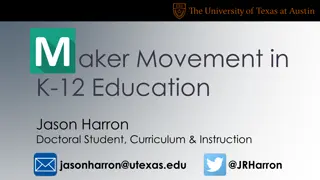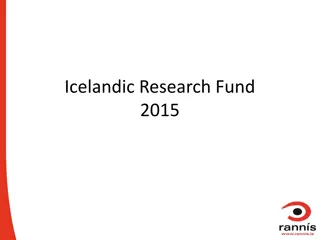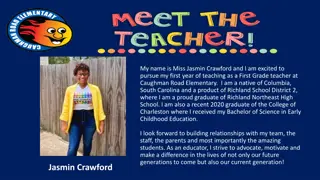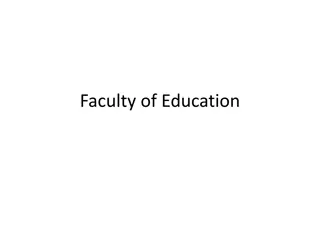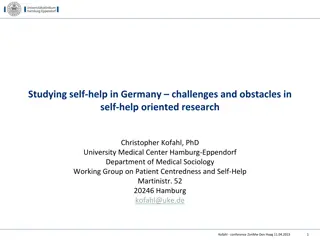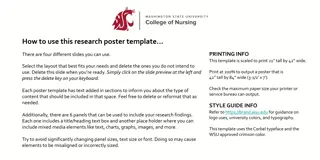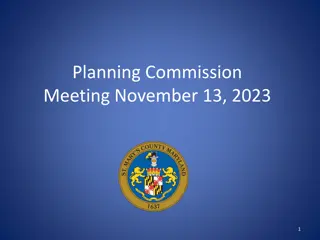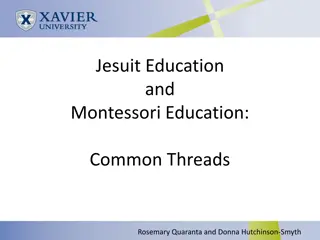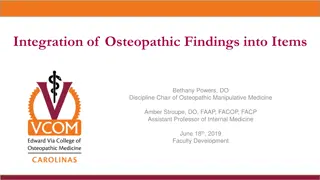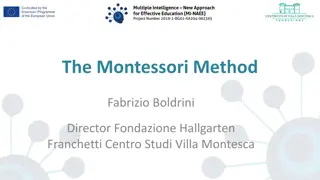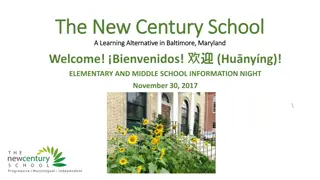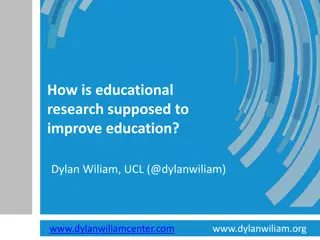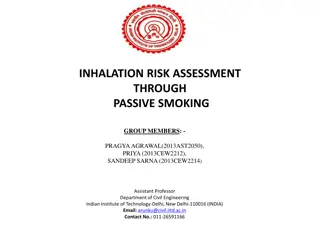Comprehensive Research Findings on Montessori Education
This slide deck from Montessori-science.org presents data from studies by Lillard and others regarding the impact of Montessori education on various aspects such as social skills, emotional regulation, self-concept, and social knowledge. The findings are based on peer-reviewed research and offer valuable insights for school administrators, parents, and educators. The slides cover topics like social competence, behavior, self-concept development, and theory of mind tasks, showcasing the benefits of Montessori methods in early childhood education.
Download Presentation

Please find below an Image/Link to download the presentation.
The content on the website is provided AS IS for your information and personal use only. It may not be sold, licensed, or shared on other websites without obtaining consent from the author.If you encounter any issues during the download, it is possible that the publisher has removed the file from their server.
You are allowed to download the files provided on this website for personal or commercial use, subject to the condition that they are used lawfully. All files are the property of their respective owners.
The content on the website is provided AS IS for your information and personal use only. It may not be sold, licensed, or shared on other websites without obtaining consent from the author.
E N D
Presentation Transcript
Montessori-science.org This slide deck shows data from Lillard and others studies relevant to Montessori education. It presents the full, unbiased picture of peer-reviewed results we found as of January, 2020 Original papers are referenced School administrators, parents, and others should feel free to use these slides in presentations except please ask before presenting at a conference where Lillard will also present (lillard@virginia.edu) Slides were created by UVa students in the Reinventing Eduvation seminarin the fall of 2019 and edited by Allyson Snyder.
Social Skills & School Climate Slides
Emotional Regulation Social Competence and Behavior Parent Form 45 * 40 35 30 Mean Rank Montessori 25 Conventional 20 15 10 5 0 * p < .05. Deleri man, E., Dani man, S., Akin Demircan, Z., & Yaya, D. (2019). The effect of the Montessori education method on pre- school children s social competence behaviour and emotion regulation skills. Early Child Development and Care, 189(9), 1-15. doi: 10.1080/03004430.2017.1392943
Self-Concept Questionnaire (Saraswat, 1997) Measures 60 *** *** *** 50 Levels of Self-Concept 40 30 20 10 0 Physical Social Temperament Education Montessori Children Traditional Children Moral Intellectual Global Self-Concept *** p <.001 Shivakumara, K., Dhiksha, J., & Nagaraj, O. (2016). Efficacy of Montessori and traditional method of education on self- concept development of children. International Journal of Educational Policy Research and Review, 3(2), 29 35.
Self-Concept Questionnaire (Saraswat, 1997) 100 90 Montessori Children 80 70 Traditional Children Percentage of Children 60 50 40 30 20 10 0 Very High High Medium Low Very Low Self-Concept Shivakumara, K., Dhiksha, J., & Nagaraj, O. (2016). Efficacy of Montessori and traditional method of education on self-concept development of children. International Journal of Educational Policy Research and Review, 3(2), 29 35.
Social Knowledge: Theory of Mind False Belief Task with 5-year-olds 1.2 Montessori * 1 Conventional 0.8 0.6 0.4 0.2 0 * significantly > chance, p < .05. Bars show standard deviation. Lillard, A. S., & Else-Quest, N. (2006). Evaluating Montessori education. Science, 313, 1893 1894. doi: 10.1126/science.1132362
Social Knowledge Theory of Mind Scale (Wellman & Liu, 2004) 2 1.9 1.8 Classic Montessori 1.7 1.6 Supplemented Montessori 1.5 1.4 Conventional 1.3 1.2 1.1 1 Fall Spring Lillard, A. S. (2012). Preschool children s development in classic Montessori, supplemented Montessori, and conventional programs. Journal of School Psychology, 50(3), 379 401. doi: https://doi.org/10.1016/j.jsp.2012.01.001
Social Knowledge School Year Growth-Theory of Mind Scale (Wellman & Liu, 2004) 1 Classic Montessori 0.8 0.6 Supplemented Montessori 0.4 Conventional 0.2 0 -0.2 -0.4 -0.6 Ns. Bars show standard deviation. Lillard, A. S. (2012). Preschool children s development in classic Montessori, supplemented Montessori, and conventional programs. Journal of School Psychology, 50(3), 379 401. doi: https://doi.org/10.1016/j.jsp.2012.01.001
Social Knowledge: Theory of Mind Scale 3.5 Montessori 3.14 Control 3 2.79 2.5 a: t(136) = 2.11, p = .04, d = .36 2.35 a 2 Latent Growth Curve Modelling: B = 0.10 (SE = 0.04), p < .05 1.94 1.37 1.5 1.28 1 0.82 0.87 0.5 Time 0 Time 1 Time 2 Time 3 Lillard, A. S., Heise, M. J., Richey, E. M., Tong, X., Hart, A., & Bray, P. M. (2017). Montessori preschool elevates and equalizes child outcomes: A longitudinal study. Frontiers in Psychology, 8, 1783. doi: 10.3389/fpsyg.2017.01783
Social Problem Solving Fairness with 5-year-olds 6 ** Montessori 5 Conventional 4 3 2 1 0 ** p < 0.01. Bars show standard deviation. Lillard, A. S., & Else-Quest, N. (2006). Evaluating Montessori education. Science, 313, 1893 1894. doi: https://doi.org/10.1126/science.1132362
Social Problem Solving Positive, Direct Strategy with 12-year-olds 4 ** 3.5 Montessori 3 2.5 Conventional 2 1.5 1 0.5 0 ** p < 0.01, bars show standard deviation Lillard, A. S., & Else-Quest, N. (2006). Evaluating Montessori education. Science, 313, 1893 1894. doi: https://doi.org/10.1126/science.1132362
Social Problem Solving Growth in appeals to fairness across scholl year 0.6 0.5 Classic Montessori 0.4 0.3 Supplemented Montessori 0.2 Conventional 0.1 0 Fall Spring Lillard, A. S. (2012). Preschool children s development in classic Montessori, supplemented Montessori, and conventional programs. Journal of School Psychology, 50(3), 379 401. doi: https://doi.org/10.1016/j.jsp.2012.01.001
Classroom Environment 5 ** 4.5 *** 4 *** 3.5 3 Montessori 2.5 Conventional 2 1.5 1 0.5 0 Teacher Support Classroom Order Emotional Safety *** p < .001, ** p < .01. Bars show standard error. Rathunde, K., & Csikszentmihalyi, M. (2014). The social context of middle school: Teachers, friends, and activities in Montessori and traditional school environments. In Applications of Flow in Human Development and Education: The Collected Works of Mihaly Csikszentmihalyi (pp. 189 213). Springer, Netherlands. doi: https://doi.org/10.1007/978-94-017-9094-9_9
Positive Peer Play Among 5-Year-Olds Observation of Playground Activity 18 * 16 14 12 Montessori 10 Conventional 8 6 4 2 0 * p < .05. Bars show standard deviation Lillard, A., & Else-Quest, N. (2006, September 29). Evaluating Montessori education. Science. https://doi.org/10.1126/science.1132362
Ambiguous Rough/Tumble Among 5-Year- Olds Observation of Playground Activity 5 * 4.5 4 3.5 3 Montessori 2.5 Conventional 2 1.5 1 0.5 0 -0.5 * p < .05. Bars show standard deviation. Lillard, A. S., & Else-Quest, N. (2006). Evaluating Montessori education. Science, 313, 1893 1894. doi: https://doi.org/10.1126/science.1132362
Positive School Feelings of 12-Year-Olds Questionnaire * 10 8 6 4 Montessori Conventional 2 0 School Feelings -2 -4 *p < .05. Bars show standard deviation. Lillard, A. S., & Else-Quest, N. (2006). Evaluating Montessori education. Science, 313, 1893 1894. doi: https://doi.org/10.1126/science.1132362
Positive School Feeling: Liking Recreational vs. Academic Taskss Liking of R ecreational T asks Liking of A cadem ic T asks 28 28 26 26 24 24 Control Montessori 22 22 20 20 18 18 Summed Across Preschool Summed Across Preschool 16 16 14 14 12 12 10 10 8 8 6 6 4 4 2 2 0 0 Note:? Dark? lines? =? means;? darkly? shaded? areas? =? 95%? confidence? intervals;? dots? =? children.? Lillard, A. S., Heise, M. J., Richey, E. M., Tong, X., Hart, A., & Bray, P. M. (2017). Montessori preschool elevates and equalizes child outcomes: A longitudinal study. Frontiers in Psychology, 8, 1783. doi: 10.3389/fpsyg.2017.01783
